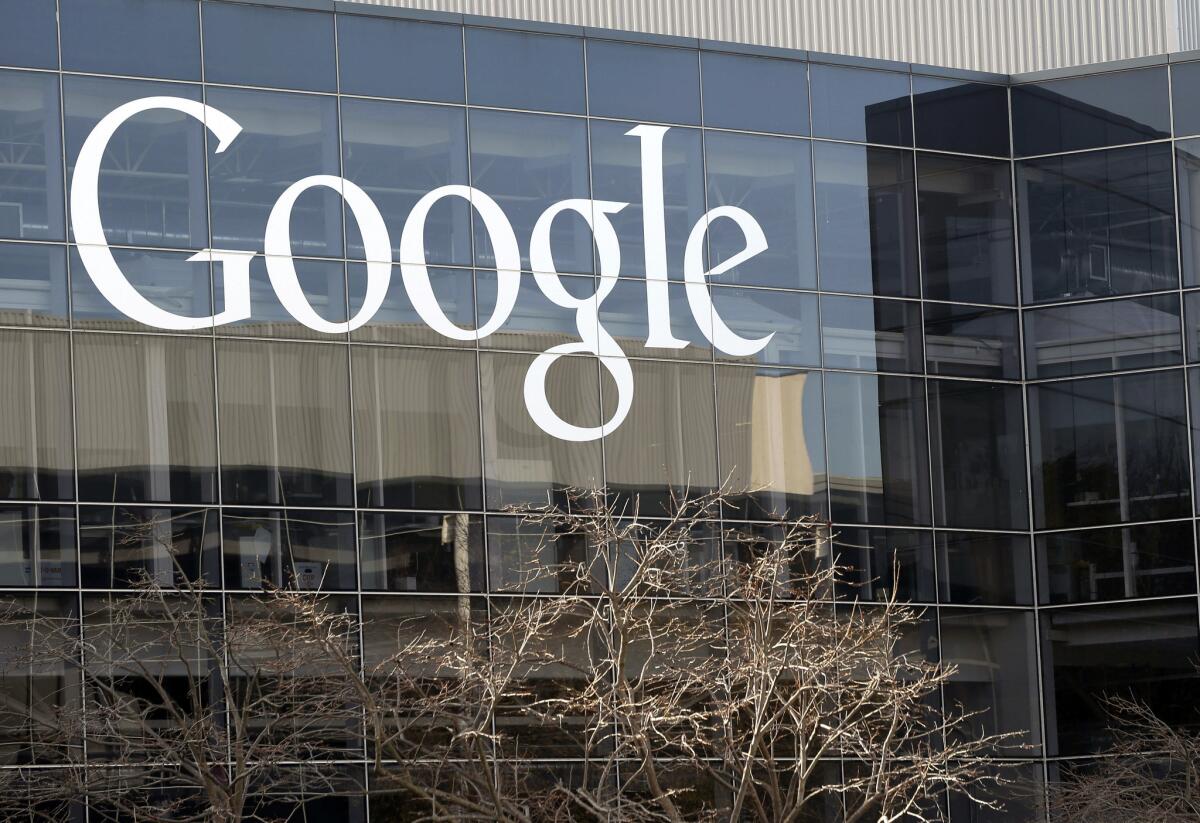A big, winning day for Google Books in court

- Share via
Google Books, the search sovereign’s vast and controversial digital library of scanned books, won a huge legal victory Thursday from the same federal judge who had thrown the project into legal limbo 2 1/2 years ago.
District Judge Denny Chin in New York rejected a copyright infringement lawsuit brought against Google by the Authors Guild and three writers, ruling that Google had made a fair use of the millions of copyrighted books it had scanned from university libraries. Chin had previously rejected a settlement that Google had reached with the Authors Guild, saying it went too far in enabling Google to exploit digital copies of works without the copyright holders’ permission.
Google partnered with a number of publishers and libraries, including the Library of Congress and the Harvard University Library, to create a database of digital copies of books. The point was to help Google users find material in published texts as well as on Web pages. When someone searches for a word or phrase, the results include links to any books where the word or phrase can be found. Clicking on one of those links displays an excerpt from the book -- a whole page, if the book had been released by one of Google’s publisher partners, or just a snippet, if it had come from a copyrighted work on a library’s shelf.
After the Authors Guild sued in 2005, Google argued that it was making a fair use of the books even though it was copying many of them without permission and wasn’t paying for the right to make the copies or display excerpts. The fact that it was copying entire books not just for its own database but also for its library partners seemed to weaken its defense. So did the fact that the project served Google’s business interests.
But the core of Google’s defense was that it wasn’t making copies to compete with book publishers or give people an alternative reading experience -- it was creating a searchable database of words and phrases. And in Thursday’s ruling, Chin agreed that Google’s use was transformative, not a substitute for what the authors were producing.
“Google Books digitizes books and transforms expressive text into a comprehensive word index that helps readers, scholars, researchers, and others find books,” Chin wrote. “Google Books ... uses words for a different purpose; it uses snippets of text to act as pointers directing users to a broad selection of books. Similarly, Google Books is also transformative in the sense that it has transformed book text into data for purposes of substantive research, including data mining and text mining in new areas, thereby opening up new fields of research. Words in books are being used in a way they have not been used before.”
The fact that Google is a commercial entity argues against its fair-use defense, Chin acknowledged, but he said the company isn’t selling digital copies without the copyright owners’ permission, running ads alongside the snippets displayed or otherwise monetizing the scans directly. He also held that Google Books increases the value of a copyrighted volume by helping it attract potential readers’ attention.
“Many authors have noted that online browsing in general and Google Books in particular helps readers find their work, thus increasing their audiences,” Chin wrote. “Further, Google provides convenient links to booksellers to make it easy for a reader to order a book. In this day and age of on-line shopping, there can be no doubt but that Google Books improves books sales.”
Finally, he rejected arguments that Google made infringing copies of books for its library partners or that it enabled readers to create copies of books for free just through search results. “While partner libraries have the ability to download a scan of a book from their collections, they owned the books already -- they provided the original book to Google to scan,” Chin wrote. “Nor is it likely that someone would take the time and energy to input countless searches to try and get enough snippets to comprise an entire book. Not only is that not possible as certain pages and snippets are blacklisted, the individual would have to have a copy of the book in his possession already to be able to piece the different snippets together in coherent fashion.”
Judges review fair-use claims on a case-by-case basis, so Chin’s ruling may not prove to influence many other lawsuits. But it does lay out a strong defense for Web-based businesses that copy material in order to make it easier to find or analyze.
ALSO:
McManus: Dreaming of the White House
Photo essay: Obamacare -- and 8 other bungled launches
Follow Jon Healey on Twitter @jcahealey and Google+
More to Read
A cure for the common opinion
Get thought-provoking perspectives with our weekly newsletter.
You may occasionally receive promotional content from the Los Angeles Times.










